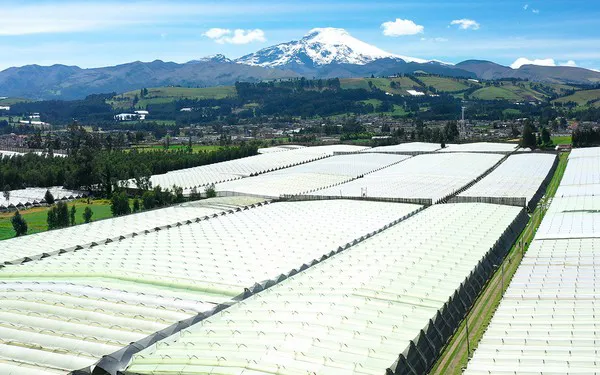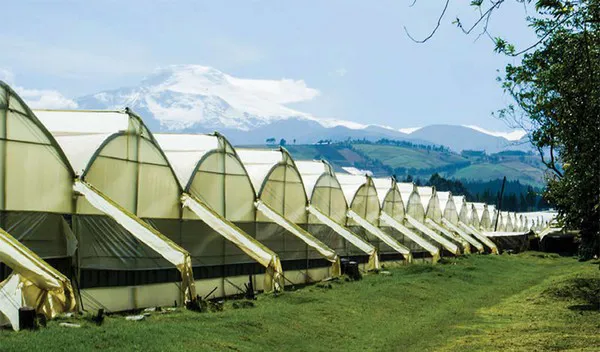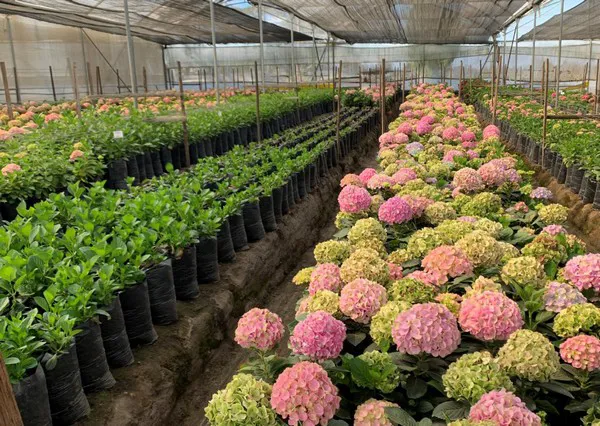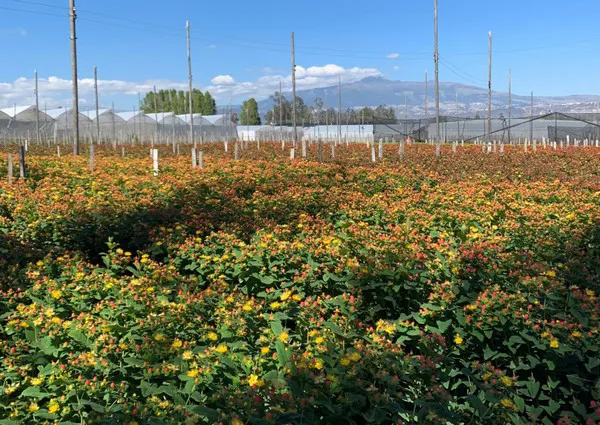Colour Republic is converting from chemical-based processes to natural-based solutions to improve land and soil quality. In order to realize it, this Ecuadorian flower farm developed an exclusive in-house bio-factory of fertilizers and nutrients created from natural microorganisms. "This has enabled an elimination of 80% of the use of chemical pesticides and 50% of fungicides", the company says. "Sustainable growing practices are core to every step of our farming process, ensuring healthy flowers and soil season after season. This requires the development of new and cutting-edge solutions, continuous testing and research, and a commitment to being good stewards of the land."

A teacher and a leader in eco-friendly farming
It's also important for Colour Republic to be a leader and a teacher in eco-friendly farming, leading by example in sustainable methods and sharing our successes, the company explains.
"Natural methods protect and enrich the soil and plants. Farm solid waste and post-harvest materials are all used as compost for the soil, so there is no waste—we recycle all crop materials; nothing is thrown away."
Their in-house bio-factory of fertilizers and nutrients also saves water as the compost keeps moisture in the soil." In addition, 100% of our wastewater is rescued and treated; and rainwater is captured, stored, and used to hydrate our crops — all improving water efficiency."
"Reducing traditional pesticides and chemicals also helps our farmers. Eliminating exposure ensures a healthy work environment, and safer alternatives reduce the chance for injuries and illness."

The Colour Republic Bio-Factory was developed using three main elements:
- Microorganisms. "They contain a great biodiversity of bacteria, fungus, yeast, and protozoans that are found in the very top layer of forest floors. These are like the probiotics for the soil, and they bring the soil back to life which then maintains a natural life-filled balance within the soil."
- Minerals. "They are then used from the many rocks found in the volcanic soils rich from the Andes Mountains. This rock dust carries more than eighty different minerals which cannot be found in regular fertilizers on the market."
- Organic matter is created from all harvest and post-harvest waste from their farms. "This matter is a natural fertilizer for our flower production."
All farm agro-waste is used as compost for the soil, which reduces the volume of water needed at the farm since compost keeps the soil moist. Additionally, 100% of the wastewater is saved and treated as well as rainwater, which is captured and stored making their irrigation systems more efficient.

Converting high-production farms is no easy task
Fungi and insects present a real problem in flower farming. "Ongoing research and testing help us to determine which methods are most effective and what chemicals we can cease using—protecting the flowers by using natural resources that make the soil as nutrient-rich as possible."
"Using mostly natural resources that are created during the farming process results in well-balanced soil that is fertile and rich in nutrients. We produce 40 tons of proprietary and natural elements every week that are used to enrich the soil and to keep it free from disease and insects."
Their farms are Flor Ecuador certified. "This means we comply with strict guidelines for the safety and health of our employees, efficient management of our resources, as well as the establishment of sustainable processes for the care of the environment. We are 100% compliant with the high-level labor standards in Ecuador that guarantee the well-being of our team. Our goal is to be a "Zero Carbon Farm," measuring greenhouse gases to achieve neutrality by 2030."

"It's not easy to take a risk with our crops — to try and test new methods, especially on our farms which are all outdoors. It takes time, resources, and research, but we know it's the right thing to do, and sharing our results is a large step forward for our entire industry."
"Our founders have inspired a foundation of social and environmental commitment to our team, our customer partners, and the industry—changing not only the way our flowers are grown but making a positive impact in the world. It is part of our DNA, and our life grows from the soil."
For more information:
Colour Republic
www.colourrepublic.com










